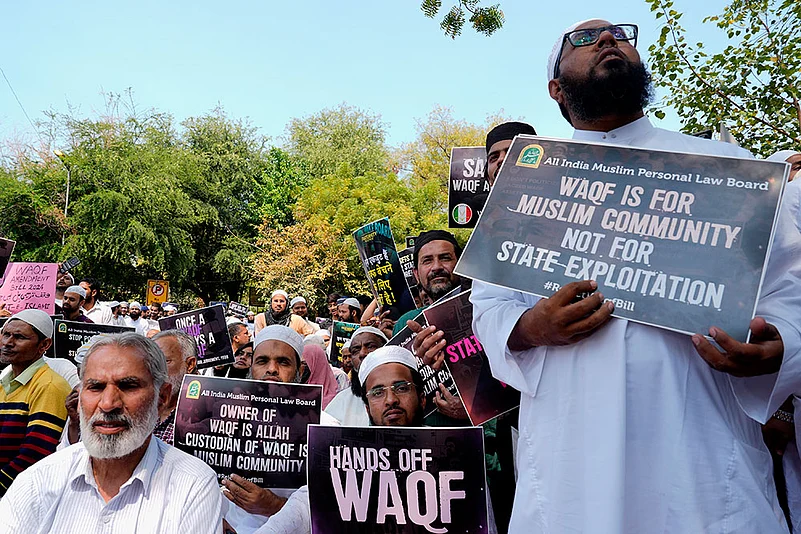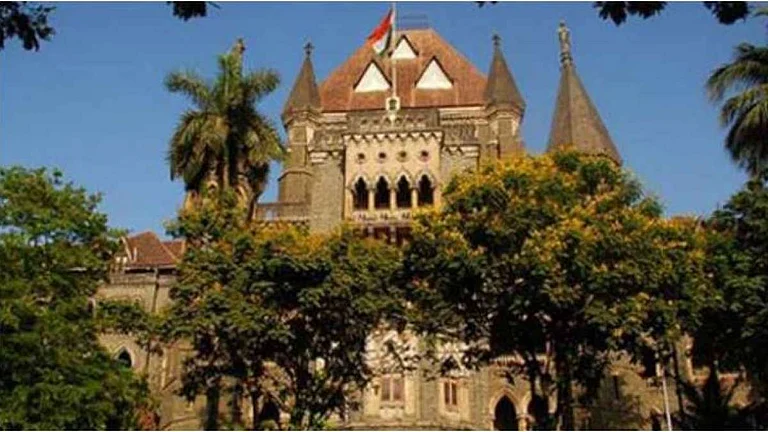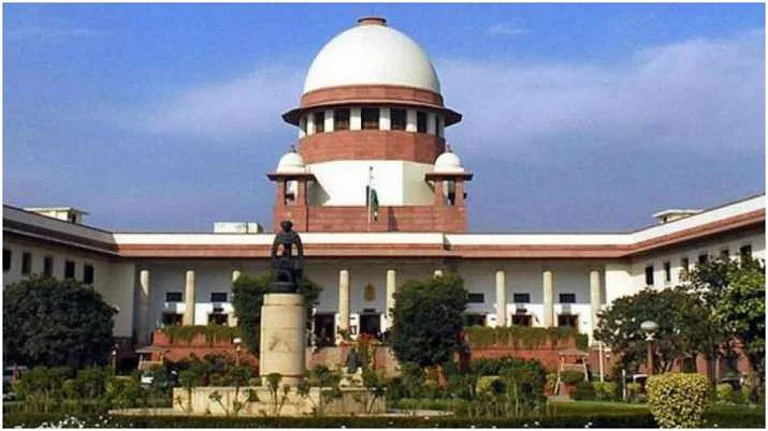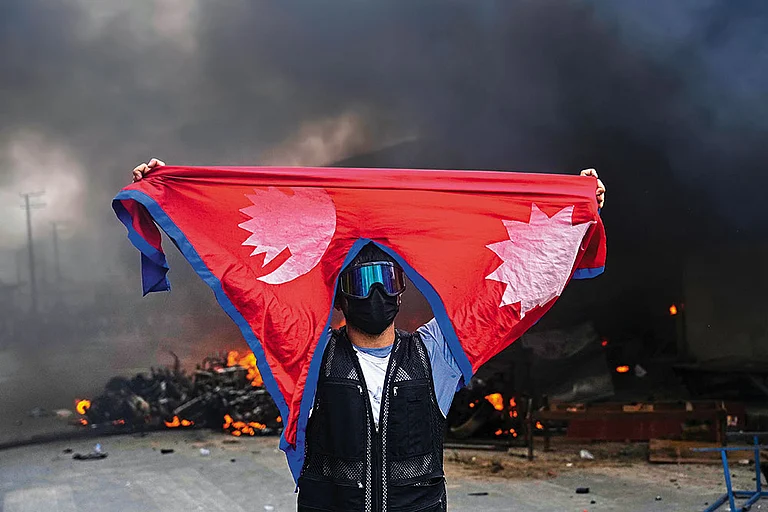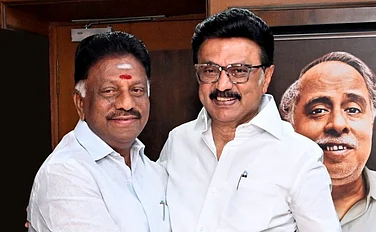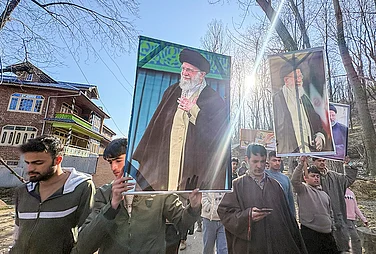
Only four of 80 petitions were heard, restricting arguments on the Waqf Act amendment due to administrative decisions, impacting Indian Muslims.
The new proviso to Section 2 of the Waqf Act, 1995, excludes trusts from waqf law, potentially removing most Maharashtra waqfs, like the Antilia land, from Waqf Board jurisdiction due to weak legal arguments.
The proviso negates Supreme Court decisions (1962, 2022) prioritizing waqif intent, allowing trust property sales, unaddressed in court due to ineffective counsel.
The recent interim order of the Supreme Court in the writ petitions challenging the Waqf (Amendment) Act, 2025, produced widely varying and quickly fluctuating responses, with the mood in the petitioners’ camp swinging from jubilant to despondent within a span of a few hours. The tragic-comic scenes that resulted only go on to show how scant the understanding is of the waqf law in general.
To begin with, the arguments in court were themselves limited by two administrative decisions of the court. Out of around 80 petitions filed, the court chose to limit itself to five, and directed the rest to be treated as Intervention Applications (IAs)—applications requesting to be heard in those five cases. The counsels in these IAs were eventually not heard, except one. Of the five petitions shortlisted, the court heard the counsel in only four. As a result, the hearing became severely limited to what the counsels who were given an audience chose to argue. While this may have been an administrative requirement in the interest of time management, the extent of curtailment was severe, especially given the importance of the case to Indian Muslims.
The judgement falls far short of applying the most basic principles that govern interim orders—balance of convenience and preventing irreparable harm. The judgement does give the petitioners a fig leaf worth of interim protection, but then dilutes it by heavily qualifying it. The requirement of showing practice of Islam for at least five years before dedicating property to a waqf has been stayed, but only until rules are framed by the state government prescribing a mechanism to determine if the donor is Muslim and for how long s/he has been practising. Though the provisions relating to the appointment of non-Muslims to the Central Waqf Council and the State Waqf Boards were found unjustifiable, their numbers have simply been limited to four and three members, respectively, because that was the compromise that the Solicitor General himself offered. Though the removal of the requirement of the CEO of a Waqf Board to be Muslim is not stayed, states have been asked to “make an effort” “as far as possible” that he is Muslim.
The only real relief is the stay of the draconian provision in Section 3C that the moment the Designated Officer commences an inquiry into the status of a property disputed between a waqf and a governmental agency, the property ceases to be a waqf property. Even here, the inquiry by the Designated Officer itself has not been stayed, brushing aside the petitioners’ arguments that the state, through its officer, should not be allowed to be a judge in his own cause. One is reminded of the adage—with appropriate modifications—my Lords giveth and my Lords taketh away.
Relief denied falls into two categories: where no effective argument for a stay was made by the counsels who were heard, and, where the court, after considering arguments, has denied relief. In the first category, for instance, no meaningful challenge was made in course of arguments to the newly-added proviso to Section 2 of the Waqf Act, 1995, excluding from the application of the Act any charitable institution that was ever registered as a trust under any law, irrespective of the nomenclature and although the purpose may have been similar to a waqf. To understand its impact, let’s look at Maharashtra, where historically, all waqfs were registered with the Charity Commissioner as trusts under the Bombay Public Trusts Act, 1950. These were transferred to the jurisdiction of the Waqf Board much later. As such, by this amendment, the vast majority of waqfs in Maharashtra will potentially cease to be subject to waqf law. As is well-known, the land on which ‘Antilia’—the Ambani home in Mumbai—stands, once belonged to such a ‘Muslim trust’, an Ismaili Shia orphanage, and its transfer to Mukesh Ambani was, until this amendment, being contested on the ground that waqf land cannot be sold. By excluding all such trusts from the Waqf Act’s purview, the new proviso removes this bar, potentially validating transfers like Antilia’s, as trust property in Mumbai can be sold with the permission of the Charity Commissioner, which had been obtained by Ambani. The new proviso, which begins with the words “notwithstanding any judgement of any court” amounts to a legislative overruling of two prior decisions of the Supreme Court—Nawab Zain Yar Jung in 1962 and Shaikh Yusuf Bhai Chawla in 2022—which held that the intent of the waqif (donor) and the objects and purposes of the dedication would determine whether a charity is a waqf, irrespective of its form as a trust. None of this was placed before the court in proper perspective by the counsels who argued, and as a consequence, it finds no consideration in the judgement.
Similarly, no meaningful challenge was raised concerning the deletion of Section 107, as a result of which, suits against encroachers in illegal occupation of waqf properties for over 12 years will become time-barred, and the properties will be permanently lost. This kind of a permanent alteration of the status quo is precisely what is to be prevented by courts while disputes are pending, under the principles of ‘balance of convenience’ and ‘irreparable injury’. The court simply observed that since the Limitation Act applied to all other proceedings, why should it not apply to waqfs, and the deletion, in fact, removed discrimination that existed before the amendment, overlooking that similar exclusion from limitation continues for Hindu temples and mutts under Hindu religious endowment laws in Tamil Nadu, Andhra Pradesh and Telangana.
No other example exists of compulsory inclusion of a person of another faith into a statutory board managing religious properties of one faith. This argument was not even considered by the court.
As for relief that the court did consider, some glaring flaws in the judgement are discussed illustratively for want of space. Far too much time was spent by counsels in labouring over how the amendment allowed for a majority of the council and boards to be non-Muslims. That is all the judgement discusses, eventually drawing from the Solicitor General’s own concession and limiting the number of non-Muslims to 4 and 3, respectively, for now. Not enough emphasis was laid on the fact that the introduction of even one non-Muslim member undermines the constitutional balance created by the 1995 Act, which created all-Muslim statutory bodies as a means of balancing the right of a religious group to manage their own properties and their own affairs guaranteed by Article 26 and the State’s power of regulation to ensure that such properties are not mismanaged. This constitutionally prescribed balance is the reason why Sikh Gurdwara Parbandhak Committees and Hindu Religious Endowment Boards are statutorily required to comprise only Sikhs and Hindus, respectively. No other example exists of compulsory inclusion of a person of another faith into a statutory board managing religious properties of one faith. The Union Government’s lone example of the Bodh Gaya Temple Act, 1949—which requires both Hindus and Buddhists to be equally represented in the committee managing the temple—only strengthened the petitioners’ case. Representation from both faiths in the statutory board for the Bodh Gaya Temple is mandated precisely because both have religious traditions and devotions attached to the temple, not because non-believers were to be inducted into its management. In contrast, singling out waqf boards for compulsory inclusion of non-Muslims, even one non-Muslim, amounts to hostile discrimination against Muslims. This argument was not even considered by the court.
The centerpiece of disappointment in the court’s judgement is its refusal to stay the deletion of ‘waqf-by-user’ from the definition of ‘waqf’ in Section 3(r). A waqf-by-user is an ancient waqf whose documents of title and dedication have been lost, but which the pre-amendment law recognised as a waqf on production of evidence of its use as a waqf since time immemorial. ‘Time immemorial’ is understood in law as being beyond any living person’s memory. Tens of thousands of such waqfs exist across India that are not registered and have no documents of dedication available. After the amendment, these waqfs can no longer be registered and will consequently lose the protection of waqf law, becoming fair game for encroachment, forced dispossession and even illegal demolition. The court’s reason for refusing a stay was that the registration requirement was introduced under the earlier Mussalman Waqf Act, 1923, and if mutawallis (manager, custodian or trustee) had not registered the waqfs under their charge for 102 years, they cannot now say that it should be allowed to continue as a waqf.
This reasoning lacks appreciation of the working of the Waqf Acts over time and their raison d’être. There are three principal stakeholders in any waqf property: the mutawalli in charge of its management, the community using the property or benefiting from its usufruct, and the state and its regulatory agencies. The statement of objects and reasons of the 1923 Act shows that the first requirement of disclosure of waqf properties to the jurisdictional civil court was introduced because “[i]n some cases, difficulties have arisen in finding out whether any particular properties are really subject to wakf or not. There are numerous wakf properties all over the country unknown to the public which the mutawallis are treating their own private property and dealing with in any way they think fit or necessary.” Therefore, it is clear that the evil that the 1923 Act sought to remedy was that of unscrupulous mutawallis avoiding registration to escape regulation and accountability. Mutawallis, therefore, suffer from a conflict of interest and were always expected to try to avoid registration and the consequential regulatory scrutiny. To remove this dependency on the mutawallis, the Wakf Act, 1954 placed the onus of registration on the state through mandatory surveys.
This was continued in the Waqf Act, 1995. In addition, Waqf Boards were also given the power under Section 40 of the Act to identify waqf properties which were missed out in the survey and register them. Despite this, it was noted in the statements of objects and reasons of the Wakf (Amendment) Act, 2013, that “there is no time limit fixed in the Act for completion of such surveys. So far only one State has completed the survey”. Even until 2025, several states, such as Gujarat and Uttarakhand, had not completed surveys. It is also unreasonable to expect individual beneficiaries of a waqf, such as namazis in a masjid or zaireen in a dargah, to file for registration as they are merely visitors. The court’s reasoning, therefore, effectively punishes the larger Muslim community for the failures of the state governments and the omissions of unscrupulous mutawallis.
Section 3D, introduced by the amendment, voids any waqf declaration or notification under this or previous Waqf Acts if the property is a protected monument or area under the Ancient Monuments Preservation Act, 1904 or its successor, the Ancient Monuments and Archaeological Sites and Remains Act, 1958.
In relation to this, the court merely noted that since Section 5(6) of the 1958 Act permits citizens to continue their religious practices even in protected monuments, the apprehension that Muslims would be deprived of their places of worship is misplaced. What it failed to note is that in Sambhal, a suit is already pending asking the Archaeological Survey of India (ASI) to prohibit Muslims from performing namaaz in the Shahi Jama Masjid and open it for public viewing instead. Just last month, a writ petition was filed before the Madhya Pradesh High Court’s Gwalior Bench asking for a direction to the ASI to change the word ‘mosque’ in its records concerning the Bijamandal Mosque in Bhilsa to ‘temple’. In all these cases, one argument of the Muslim side—that all disputes concerning a waqf can only be raised before the Waqf Tribunal—has now been nullified by this amendment. The Supreme Court has turned a blind eye, or at the very least, failed to appreciate that this provision, introduced by a floor amendment by the government while voting on the Bill was underway, is nothing but a Hindu nationalist party in power strengthening its own hands in Hindu-Muslim disputes that it has itself proliferated throughout the country. Waqf is related to the question of ownership, whereas ASI’s role is that of preservation. Acquisition is just one of the models for preservation of a protected monument under the 1958 Act, the others being entering into an agreement with the owners prescribing dos and don’ts concerning the property, or issuing binding directions to them if they don’t enter into such an agreement. The present amendment amounts to acquisition of private property without even payment of compensation, which is in gross violation of the right to property under Article 300A of the Constitution and contrary even to Section 13 of the 1958 Act itself, which prescribes going through the procedure under the Land Acquisition Act for acquisition of a privately owned protected monument. By not granting stay of this provision, the Supreme Court has rendered this acquisition and the turmoil it will cause a fait accompli.
On May 22, 2025, the Supreme Court completed the hearing on the interim relief and had reserved its judgement. It has taken the apex court almost four months to pronounce this judgement. Meanwhile, the clock has been ticking under Section 3B introduced by this amendment, whereby every waqf is required to register on the waqf portal within six months of the coming into force of the Amendment Act on April 8. Thereafter, registration will require an order from the Waqf Tribunal in individual cases, extending the period up to a maximum of another six months. This problem of loss of time has been compounded by an appeal that was issued in June by the All India Muslim Personal Law Board to Muslims to not participate in the registration process and await the Supreme Court’s decision on interim relief. When the court pronounced the judgement refusing stay of registration, the bench was asked by a senior counsel present if they could then extend the timeline for registration. In response, the bench was reported in the press to have orally stated that they had taken care of this aspect in the judgement. Surprisingly, the judgement, when downloaded, turned out to be completely silent on this aspect. So, as things stand, the period for registration indicated in the statute is expiring in just three weeks—on October 7. The plight of Muslims with respect to this registration process is best described in the words of poet Seemab Akbarabadi:
umr-e-daraaz maang kar laaye the chaar din
do aarzu mein kat gaye do intizaar mein
(I had managed to get a lease of life of just four days
Two were spent in wishful thinking and two in waiting)
It now remains to be seen which Chief Justice of India—as ‘Master of the Roster’—will constitute a bench to hear these petitions finally. Otherwise, like the challenges to the Citizenship (Amendment) Act, 2029, these petitions will remain in cold storage while the evil inherent in the statute plays itself out.
(Views expressed are personal)
MORE FROM THIS ISSUE
Saiyyad Mohammad Nizamuddin Pasha is a Delhi-based lawyer
The article appeared in the Outlook Magazine's October 1, 2025, issue Nepal GenZ Sets Boundaries as 'Waqf Pe Kiya, Kya Haseen Sitam'






